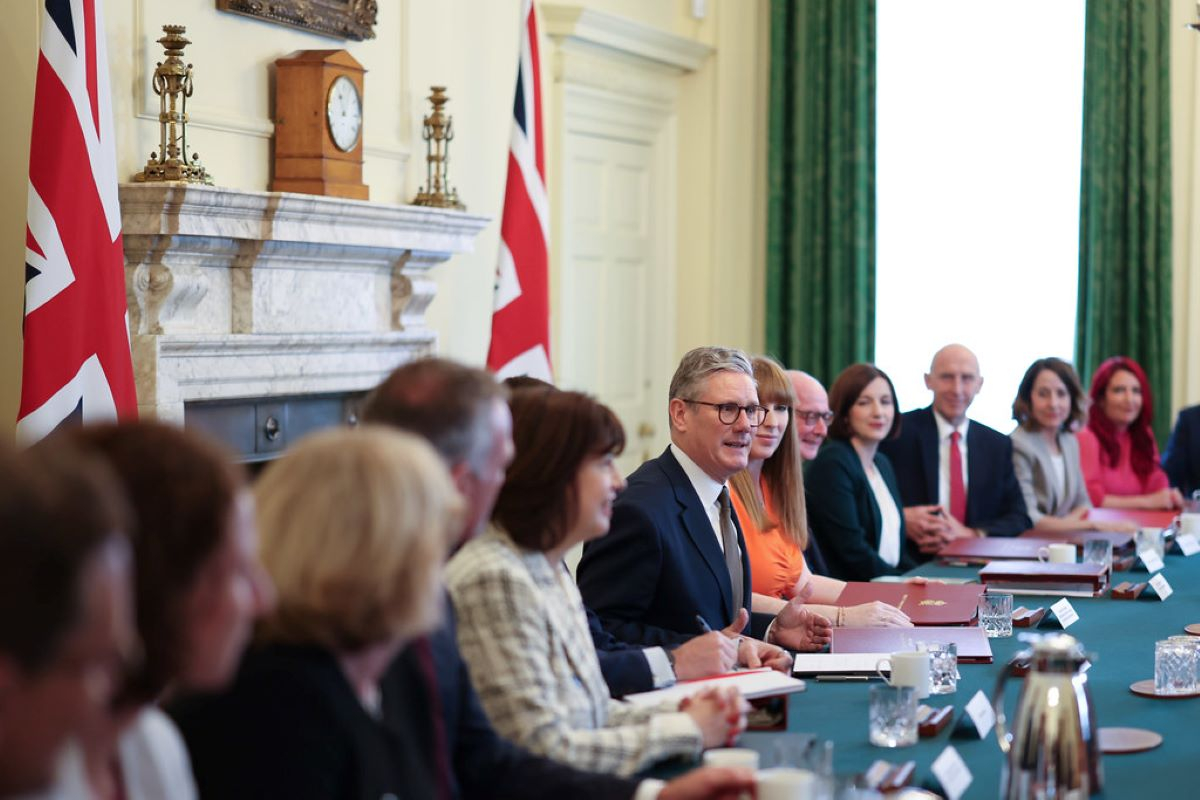This article is also available in Italian / Questo articolo è disponibile anche in italiano
The climate crisis is worsening week by week, yet the measures countries around the world are taking remain insufficient in reaching the necessary targets that would turn the tide on this problem. In response to escalating environmental issues, the Labour party has promised a host of changes to help the UK meet its eco goals, from zero-carbon electricity and energy independence to lowering fuel poverty. Here’s what their environmental manifesto has looked like in action in their first 100 days in power.
The key policies
The UK has performed poorly in the past in terms of biodiversity, with a study back in 2020 stating that it ranked in the bottom 10% of nations globally. Labour’s goals when they were elected in July included cleaning up Britain’s rivers, lakes and seas, supporting farmers in order to bolster food security in the UK, protecting communities from flooding and ensuring the recovery of our ecosystems and natural landscapes.
Labour also intended to create a roadmap to move Britain to a zero-waste economy, something that more and more businesses are taking steps to achieve. A report published by MPB found that the purchasing of used products has doubled in the past five years, and the global recommerce market is set to grow by 80% by 2028.
Ramping up the renewable sector
Labour has acknowledged the climate crisis and committed to transitioning towards clean energy, aiming to build resilience and gradually reduce energy costs. Their commitment to achieving the 2030 clean power mission has already had a positive impact on the renewable energy sector in the UK.
The Contracts for Difference (CfD) Allocation Round 6 (AR6) was a significant milestone in the UK's clean energy transition. It secured a record-breaking 131 clean energy projects and was backed by the largest budget to date. While the increased budget for AR6 is expected to enhance investor confidence in renewable energy, the Government will need to take additional measures to address the 28 GW gap needed to meet its 55 GW offshore wind target.
Building GB Energy
Great British Energy (GBE) stands out as one of Labour’s most recognised and popular policies from the July general election, envisioning a UK-owned energy company to rival foreign-owned corporations that dominate the market. This national enterprise aims to invest in next-generation renewable energy, reducing both the UK’s carbon emissions and household energy costs.
Jürgen Maier, former UK CEO of Siemens and an advocate for clean technology, has been appointed to lead GBE. With an initial funding of £8.3 billion, GBE remains among the government’s few significant green spending initiatives after Labour’s original £28 billion-a-year green investment plan was scaled back in February. GBE’s investments will focus on offshore wind, including innovative floating turbines, tidal energy, carbon capture and storage, hydrogen, and other emerging clean technologies. Maier envisions GBE joining the ranks of globally influential clean energy companies like Denmark’s Ørsted and Sweden’s Vattenfall.
When Rachel Reeves addressed parliament in October, she stated that the project has been allocated £125m in funding for 2025-2026. This is on top of the initial £8.3bn announced earlier this year. Sources indicate that the Treasury intends to keep GBE within strict financial limits, preventing it from borrowing independently to avoid adding to the government’s debt.
There are three primary advantages GBE could bring to the green energy landscape: cost efficiency, strategic coherence, and investment certainty. Utilising government-backed financing, GBE could secure capital at lower rates than private entities. With strategic coherence, the government can take a holistic view of the UK’s energy needs, rather than a segmented approach characteristic of private investment.
Improving water quality
Ahead of the election, Labour had signalled plans to address water system pollution, proposing new measures to restrict executive bonuses and enforce criminal penalties for repeat offenders. A policy statement released on 5th September further emphasised that the Bill aims to foster significant improvements in the water industry’s performance and cultural standards, positioning it as a crucial step toward transformative change across the sector.
In practice, this could lead water companies to shift liability risks to their supply chains, particularly in areas like the design, construction, maintenance, and operation of water infrastructure. We may also see the introduction of enhanced performance standards, metrics, and indemnity clauses in construction contracts and professional agreements, which would be permitted by law.
Reports also indicate that substantial fines for historic sewage spills are under consideration for water companies. It will be interesting to see how these developments align with the new legislative framework.
Retrofitting and improving energy efficiency in homes
Angela Rayner, Secretary of State for the Ministry of Housing, Communities and Local Government, and also Deputy Prime Minister, has been given the challenging task of delivering 1.5 million new homes. However, it’s expected that there will be intense lobbying from the housing sector, which contributed substantial donations to the Conservative party and will advocate for reduced regulatory barriers to facilitate quicker construction.
Part of these regulations will be standards aimed at making new homes low-carbon, an area that remains under development as part of the Future Homes Standard. Critical decisions are also still pending on the specifics of this standard, such as whether all new homes should be equipped with battery storage, solar panels, and high-quality insulation.
While these measures could offer future residents significant energy savings and help the UK with its environmental goals, they also present an increased initial cost for developers. Another major challenge is retrofitting the UK’s existing housing stock. While social housing will be prioritised, additional strategies will be needed to encourage similar improvements in privately-owned homes across the country.
It's encouraging to see Labour making good on their environmental goals and reforms, having only been in power for a few months. But there is still plenty to be put in place and big decisions made that go beyond small policy adjustments. Only time will tell how well GBE performs and what will be done to upgrade energy-inefficient homes across the UK and support decisions that will improve biodiversity.
Cover: Prime Minister Keir Starmer hosts his first Cabinet at 10 Downing Street. Picture by Lauren Hurley / No 10 Downing Street



